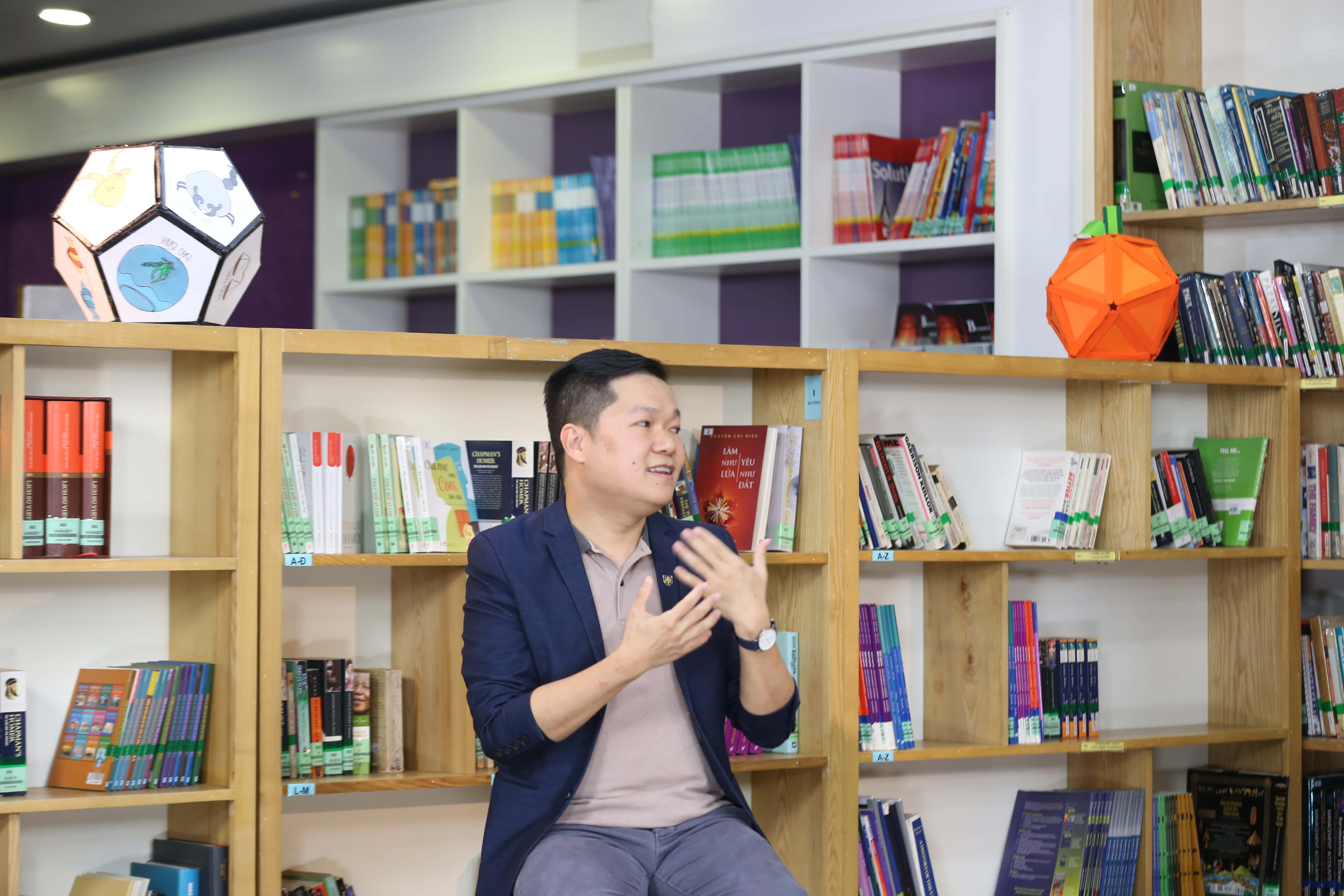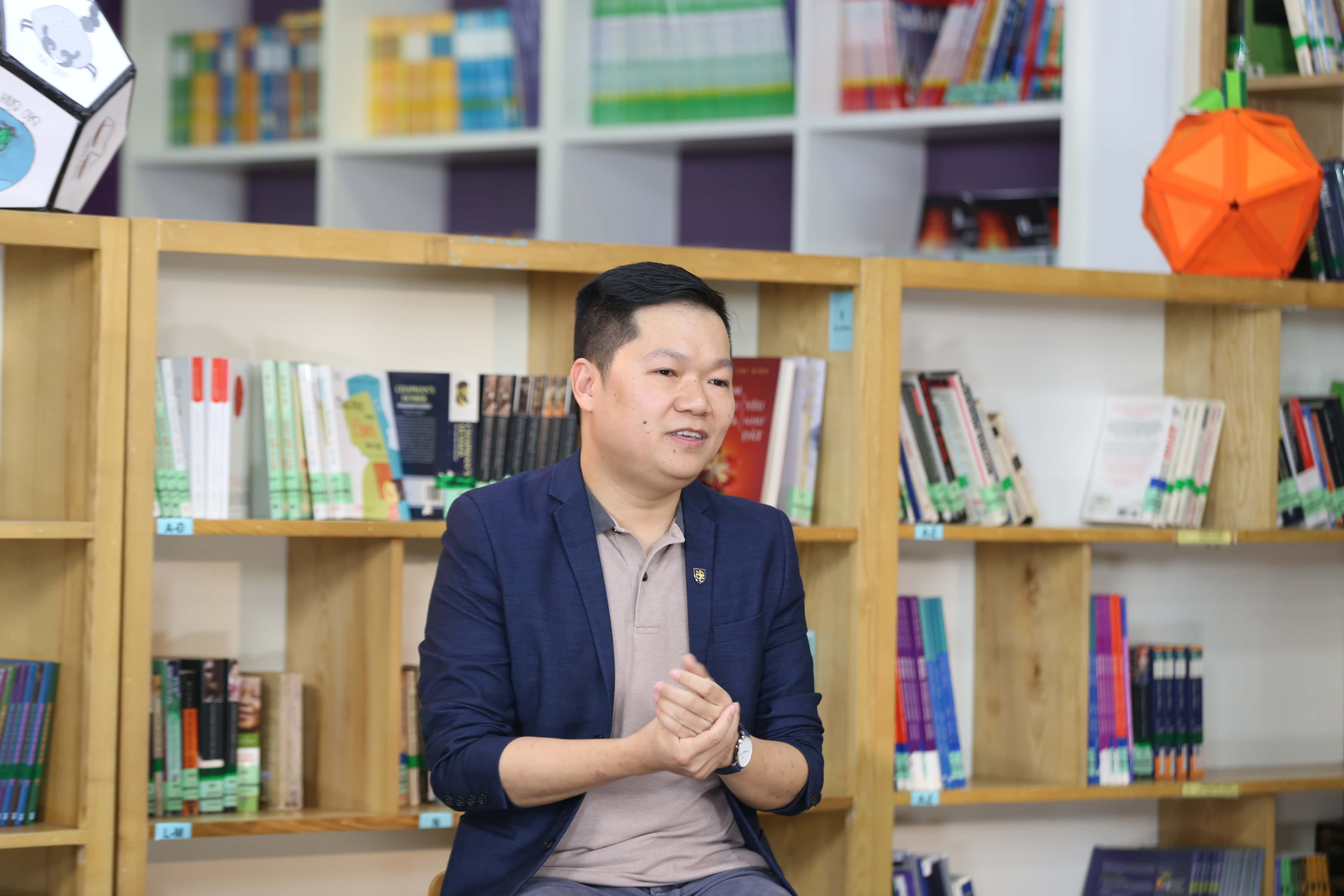
En route to the very essence of learning English
24 September, 2021
Addressed in the talk show “Math and English: nurturing new generation of talents” on 16 May 2021 held by Olympia, Dr. Nguyen Chi Hieu shared with the parents a newfound and insightful view on the essence of English learning.
Let them naturally learn English
Easy accessibility to Internet, resourceful learning materials, and parents’ stronger focus on the importance of international languages are the composite of an ideal environment for learning English as a second language. Yet, instead of “absorbing” or “immersing” themselves in the fascinating world of a new language, most of students in Vietnam are “overwhelmed” by the relentless pursuit of academic excellence.

Doctor Nguyen Chi Hieu – Economics PhD at Stanford University, Academics Director of the Olympia Schools
It is not uncommon to expect a child at grade 1 or 2 to speak English fluently. Neither for a third or forth grader to do complex grammar exercises day and night. As a result, they go to secondary school and focus on how to get high scores in more and more exams instead of learning how to make schoolwork their own intellectual assets. In particular, they answer a reading or listening question by using tips and tactics rather than fathoming what it is about. Gradually, they lose the interest and self-motivation in learning English and in the end, being loath to study.
“Learning English is like to enjoy a nutrient-rich dish. The intake should be moderate no matter how nutritious it is. If children gorge themselves on it, it will lead to loathing, or indigestion, or harm to health. If we expect them to be passionate about learning English, we should let them immerse in the vivid and colorful world of language in a natural manner,” said Dr. Hieu.
Education is to provoke curiosity and passion
Many parents and even teachers have a misconception that all children have a proposition to distract so they cannot properly learn without discipline and pressure. However, according to his research and experience with more than 20,000 students across every school grade, Dr. Hieu claimed that “the success of educators is determined by how much their students love to learn. We all have the inborn curiosity and tendency to explore. The ultimate goal of education is to provoke that instinct. No matter which approach we take, it is ill-advised if it demotivates the child to learn and explore with passion.”

Being trained to be an English grammar master or exam guru to pass entrance exams, specialized exams, international competency exams, etc. with flying colors may very likely turn a passionate learner into a forced and unwilling one. Every educator should fulfill their role in a way that stimulates their students to willingly and voluntarily open the textbooks and practice reading, writing, speaking and listening English during a work-free and exam-free summer. That should be the goal of education.
In the International Diploma program of Olympia, Dr. Hieu unleashes students’ potential and passion for English by posing practical challenges such as “building a free happy library” for the poor of APEC Group, making marketing plan to retain senior customers of Vinamilk, expanding 7-Eleven franchise, etc. All projects must be done mostly in English, from market research, planning, customer analysis, slide making, to presentation. This helps students realize the essence of learning, or specifically learning English, thus naturally regaining their curiosity and interest in the pursuit of English proficiency.

English proficiency is not a destination…
The mission of schooling is for occupation and exploration . Whether the goal is getting into university, studying overseas or getting a job, one always needs tools to gain knowledge. English proficiency is one of them. Everyone boasts about the importance of learning English but rarely knows why. “English proficiency is not a destination. It is just a linguistic means to explore every field we wish. Of course cramming grammar structure and vocabulary or practicing listening, speaking, reading and writing skills are important, but what is more important is to use them to inquire and deep dive into economics, politics, cultures, history and so on; otherwise they miss the true essence of learning English,” said Dr. Hieu.
In the end, learning English is not about an A or A+, nor any particular exam. It is about acquiring knowledge in any discipline, honing critical thinking skills, and solving problems. When students come to realize that, their English skills will not only develop but also reach maturity.



















